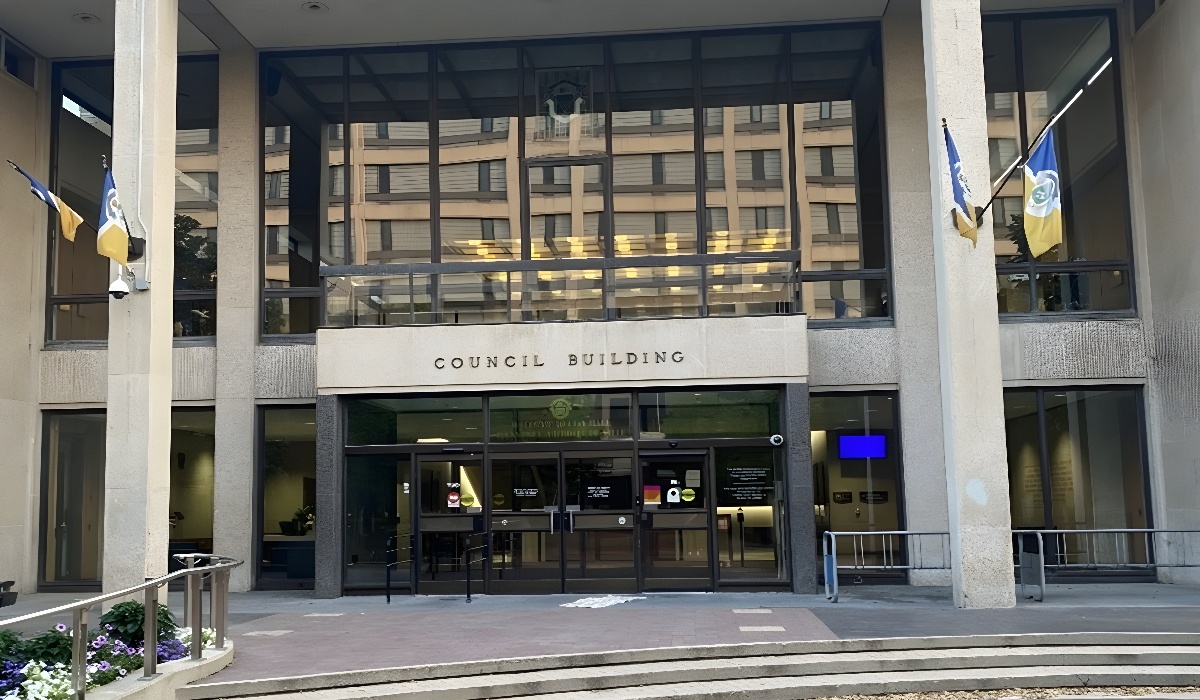Winnipeg City Hall To Saddle Citizens With $200M Intergenerational Debt
- TDS News
- Trending
- Western Canada
- February 11, 2024

Winnipeg Mayor Scott Gillingham’s recent announcement to issue $200 million in bonds has sparked many unanswered questions. Citizens need clarification, and local media struggles to pry answers from a questioningly silent administration.
Gillingham’s consistent evasion of tough questions, particularly regarding the city’s bond history and its impact on taxpayers, reveals a troubling pattern. TDS News’ persistent efforts to seek clarification on bond-related expenses have been met with resounding silence. This prompts the question: is Gillingham only at ease with softball questions that sidestep the city’s borrowing history? Every elected official should withstand scrutiny, and Gillingham’s avoidance not only does a disservice to the city but also undermines the trust of those who voted for him. Bonds, often the go-to for infrastructure projects, are necessary for municipalities lacking funds. But Gillingham, as former finance chair, oversaw supposedly balanced budgets.
“The bonds is really about past decisions we have made, and it’s the debt on the past decisions long term investment so it’s long-term debt for intergenerational projects.” Said Mayor Scott Gillingham
Mayor Gillingham’s remarks recognize that the responsibility of the debt extends to upcoming generations, encompassing both children and grandchildren. However, certain residents voice apprehension regarding the enduring financial consequences for these demographic segments.
These concerns of financial debt by Winnipeggers are warranted, considering past projects like the Police station and a rapid transit system that exclusively benefits a limited portion of the city were completed at significant cost to taxpayers. Additionally, there is dissatisfaction with the subpar condition of roads across the municipality.
“This bond issue not only funds essential infrastructure projects but also reaffirms the City of Winnipeg’s commitment to strategic, long-term investment in our future, underpinned by a foundation of strong financial management,” said Councillor Jeff Browaty, Chair of Finance, in a recent press release
Councillor Browaty’s claim that the bond issue reflects the City of Winnipeg’s commitment to strategic, long-term investment in the future raises eyebrows rather than confidence. Using bonds to pay down intergenerational debt seems like a questionable financial maneuver that requires more than vague assurances of “strong financial management.”
The citizens deserve more than mere rhetoric; they need a clear and detailed explanation of how accumulating more debt aligns with a sustainable and prosperous future. Browaty’s statement lacks transparent and convincing justification, resembling empty rhetoric from a fixture at city hall.
“It’s imperative that the people of Winnipeg are made aware of any exhaustive measures that the city has taken in various actions to boost revenue before resorting to the bond market. One suggestion for additional revenue would be to take a serious look at the city recycling its own aggregate from road work and other projects, potentially bringing in an extra $40 million annually to the city budget. Transparency in fiscal strategies is key for a thriving community.” Said Don Woodstock, Former Mayoral Candidate
The fact that the city is issuing bonds to pay off debt has prompted some citizens to take to social media and suggest the city’s actions are reminiscent of a Ponzi scheme. Anyone making those assertions only further adds to the mistrust they may feel. Citizens deserve to know the origins of all project funds, as they directly impact their financial future. Anything else or asking them to sift through complex accounting that may shed a glimpse of the city’s debt obligations in a 365-page budget is not practical.
Transparency, the bedrock of good governance, must be present in this administration. Gillingham’s consistent neglect to respond to essential questions impacting Winnipeggers is profoundly concerning for someone who campaigned on openness. Winnipeg deserves clear and comprehensive answers, especially concerning financial wellbeing.
Enhanced citizen engagement is a natural outcome when residents understand how their tax dollars are spent. A proactive step towards transparency would involve disclosing the total bond debt, maturity dates, and interest payment costs incurred by taxpayers over the last decade, presented in straightforward language. This move would foster a more informed citizenry and contribute to building trust through open communication about the city’s financial obligations.
Using a conservative interest rate of 4.65% at a 40-year yield indicated by the city, the $200 million bond payback balloons to a staggering $372 million – nearly double the borrowing amount. This is based on the assumption that the rates remain unchanged and all other factors remain static.
Then, there is a very realistic scenario: interest rates increase, and hypothetically, they double. That’s approximately $744 million, or three-quarters of a billion dollars in interest payment, providing the rate brought on by inflation or other factors.
The hardworking people of Winnipeg deserve to be informed, even if the news is unpleasant. A city that values openness must not shy away from tough questions. Gillingham and his administration owe it to the people to provide transparent, open, and honest answers about the bond history and financial decisions that will impact future generations. The time for secrecy is over; it’s time for accountability.








